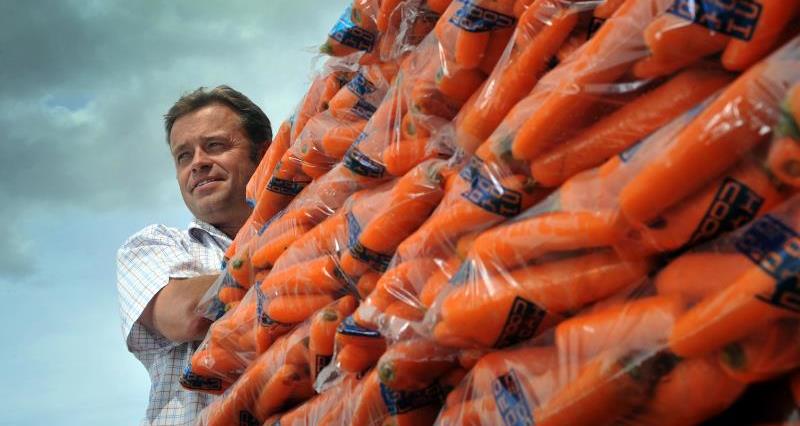Speaking on the first day of the Great Yorkshire Show, chairman of the NFU’s regional horticulture and potatoes board, carrot grower Guy Poskitt, says that while it is great to see the government recognise the potential of British horticulture, their aspirations for a ‘world leading horticulture strategy’ are being effectively undermined by their own policies.
Yorkshire horticulture is a good news story
“British horticulture is a real good news story, with the sector delivering 25% of our national agricultural output, employing over 100,000 full time and seasonal workers and contributing over £3bn to the nation’s GDP,” he said. “However, as of now, our 200+ Yorkshire growers are struggling to keep their heads above water in the face of soaring costs of production coupled with continuing labour shortages.
“We very much welcome the government’s acknowledgement of the importance of home-grown food production, but it is frustrating that, at the same time, other policies continue to deny growers access to the workers they need today as well as the investment needed to drive growth for tomorrow.”
Guy Poskitt
“We very much welcome the government’s acknowledgement of the importance of home-grown food production, but it is frustrating that, at the same time, other policies continue to deny growers access to the workers they need today as well as the investment needed to drive growth for tomorrow.”
Worker shortages top 40%
This growing season has seen British horticulture report worker shortages topping 40%, with some producers of tomatoes and cucumbers, for example, cutting back on the number of crops being grown because they either don’t have the staff or can’t make a return in the face of mounting costs.
Horticulture businesses are known to be scientifically progressive, technologically advanced and environmentally responsible but this comes at a significant cost, in a sector that has traditionally received very little government funding.
“From our perspective, the system is broken,” added Mr Poskitt. “We are still desperate for staff, with significant delays in accessing the government’s Seasonal Worker Scheme, which continues to offer far fewer workers than the estimated 70,000 needed.
“And in terms of support for investment in automation and robotic technologies, needed to reduce our reliance on seasonal workers, the sector has struggled in the past to access government schemes and those that are available are so stringent in their rules, regulations and timescales as to make them almost impossible to navigate.
We need to join the dots
“In other countries we see massive government support for their horticultural sectors. Here, there is talk about the potential to grow more and the opportunity for more glasshouse production to replace imported product and increase our food security, but with no thought as to where this level of investment will come from – especially in a sector where margins are tiny and risk levels are huge.”
As a result, Mr Poskitt is urging the government to “join the dots” and work with growers to address short and long-term challenges.
“Everyone I know in horticulture has put everything they have into their businesses and pride themselves on providing the finest fresh produce from staples like peas, potatoes, onions and carrots to local specialities such as indoor winter rhubarb and an array of summer berries,” he said.
“We have huge potential to help meet a number of white paper targets including halving childhood obesity by 2030 and can help increase our national food security by growing more fresh fruit and vegetables, but not without a coherent plan.
“Locally, grower confidence is at a very low ebb. Many are wondering if they would sleep better at night growing wheat instead. We really need to see government commit to helping us survive today and plan for a healthy tomorrow."
